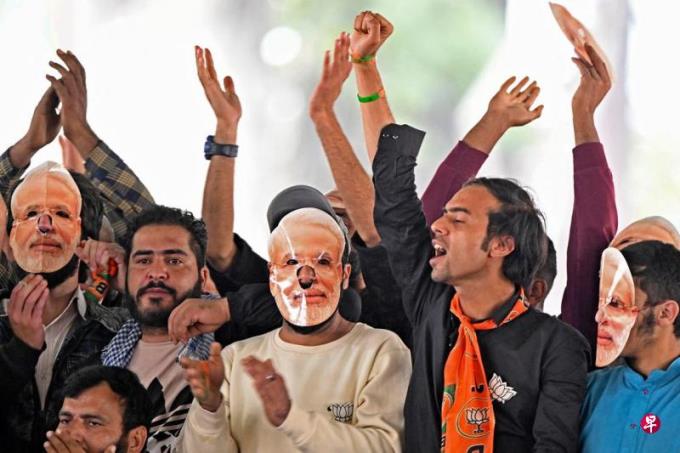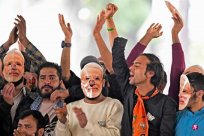
Although many challenges in the future seem to be awesome, these victories have brought some hope to people and show the toughness of the democratic system.However, when the world's reality of turning from the hustle and bustle of the election in 2024 to governance, the newly -elected reformist leader will face the arduous task of fulfilling his own campaign commitment.
The 2024 election year, which has half of the world's population or is preparing to vote, has a profound impact on democratic countries around the world.Nowadays, as we enter the last quarter of this year, there are more and more obvious signs that 2025 will be a "year of governance" that is also transformed.
The election cycle in 2024 has brought a major political change.In Poland, women and young voters' record voting rates have made the alliances formed by parental parties to win in the election last year. At the same time, it also won in the European elections in June this year.Although in the Indian election in the same month, Prime Minister Modi and the Indian People's Party led by his leaders won again, but due to the regional movement and social justice movement, the opposition party won a lot, and the Indian People's Party lost a majority of parliamentary seats.In Senegal, large -scale protests forced former President Macky Sall to abandon the effort to extend the term to extend the term through delaying elections.Just a few weeks later, the former tax inspector Bassirou Diomaye Faye, a former tax inspector with anti -corruption as the campaign program, achieved a decisive victory.
Although many challenges in the future seem to be awesome, these victories have brought a little hope to people, showing the toughness of the democratic system.However, when the world's reality of turning from the hustle and bustle of the election in 2024 to governance, the newly -elected reformist leader will face the arduous task of fulfilling his own campaign commitment.
This is not easy even in mature democratic countries.Those countries that have just got rid of autocracy are facing greater challenges, because the new government must dismantle the deep -rooted network built by the faithful supporters of the former regime, and these people may destroy and try to prevent any reforms that threaten their interests.
Some recent political transformation provides important lessons for the newly elected reform leaders, because they face the "five D" we call: Democratic (Re) Construction), democratDemyllene, Debunking Propaganda, Discord, Debt, and Disasters.
First of all, in order to prevent democracy, the newly elected reformers must strengthen core democratic mechanisms such as legislation, judicial and independent government agencies.The most important thing is that they need to protect these institutions from the influence of anti -free forces at home and abroad.
Under some extreme circumstances, it is necessary to carry out thorough reforms to remove deep corruption with root -to -root, restore the integrity of public administration.Ukraine's 2014 dignity revolution is a typical example.After overthrowing VIKTOR YANUKOVYCH, the new government cooperated with multiple civil society groups to launch a series of anti -corruption measures, including reviewing judicial institutions, strengthening accountability mechanisms, and introducing public databases.Transparent tools allow ordinary citizens to track the ownership structure of the enterprise and the distribution of state resources.
Second, the leaders of reform factions must cope with complex information operation aimed at destroying the legitimacy of governing.For example, mainland China continues to use various false speech to destroy the democratic process of Taiwan, while Marcha President Maia Sandu has been resisting a series of pro -Russian propaganda and cyber attacks from the Kremlin Palace and domestic and Russian forces.Essence
Third, the reform of the government is often a country that has suffered from profound social and political division, and resolving these lingering conflicts is vital to new leaders.For example, Bernardo Arévalo, President of Guatemala, had a dialogue with the indigenous community to acknowledge that they suffered hundreds of years of violence and exclusion, and sincerely strive to meet their needs.
Fourth, debt dilemma will seriously hinder the new government's ability to implement the necessary economic and social plans.Zambia President Hakainde Hichilema found in 2021 that his predecessors accepted unliminated huge loans, especially loans from China.Zambia's heavy debt burden caused the government's loan expenses to exceed the sum of three expenditures of health, education and environmental hygiene.At the same time, the debt restructuring process has been delayed for three years.
Kenya is another clear example of debt destruction.Earlier this year, President William Ruto was forced to withdraw a controversial financial bill designed to reduce the country's $ 80 billion in debt because the wave of protests against its tightening clauses had killed dozens of people to dieEssence
Finally, as the global temperature rises at an amazing speed, the climate -related disaster is increasingly frequent.Experts warn that the probability of children born today through extreme weather events is seven times that of grandparents.In the future, leaders must establish various powerful systems to quickly and effectively respond to the crisis while adhering to the democratic principles such as transparency, accountability and tolerance.This is particularly urgent in countries such as Malawi. In these countries, the devastating floods and droughts have led to the harvest of crops and serious food unsafe.
In the context of economic and geopolitical turmoil, such risks are even bigger.The newly elected reform leaders must fulfill their commitments to improve their living standards while protecting democracy.If they cannot do it, voters may switch to populist leaders, causing their country to face the risk of being manipulated by domestic or foreign forces.But if they succeed, the upcoming management year may become a turning point, leading people into an era of democratic revival.
(Author Adam Nelson is the senior project director of the Asia -Pacific region of the National Democratic Research Institute; Kristen Sample is the director of the Democratic Governance Team of the National Democratic Research Institute)
English Original Title: From The Year of Elects to the Year of Governance
All rights reserved: Project syndicate, 2024.



